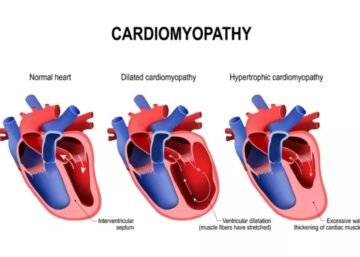Yes, there is evidence to suggest that depression can increase the risk of heart diseases. While the relationship between depression and heart diseases is complex and not fully understood, several studies have shown a connection between the two. Here are some ways in which depression may contribute to an increased risk of heart diseases:
Stress Response: Depression can activate the body’s stress response, leading to an increase in the release of stress hormones like cortisol and adrenaline. Prolonged exposure to these hormones can have detrimental effects on the cardiovascular system, such as raising blood pressure and increasing the risk of atherosclerosis (the build-up of plaque in the arteries).
Inflammation: Depression is associated with increased levels of inflammation in the body. Chronic inflammation is a known risk factor for heart diseases, as it can damage blood vessels and promote the development of atherosclerosis.
Unhealthy Behaviors: People with depression are more likely to engage in unhealthy behaviors that can contribute to heart diseases, such as smoking, overeating, consuming excessive alcohol, and being physically inactive.
Medication Side Effects: Some medications used to treat depression may have side effects that can affect the cardiovascular system. For example, certain antidepressants can cause changes in heart rate or blood pressure.
Poor Self-Care: Depression often leads to a lack of motivation and energy, which can result in poor self-care. Individuals with depression may be less likely to adhere to recommended lifestyle changes and medical treatments for heart disease.
Social Isolation: Social isolation and a lack of social support, which are common in people with depression, can also be risk factors for heart diseases. Strong social connections are associated with better heart health
It’s essential to note that while there is a link between depression and heart diseases, the relationship is not fully understood, and not everyone with depression will develop heart problems. However, individuals with depression should be aware of their increased risk and consider adopting a heart-healthy lifestyle, seeking treatment for depression, and consulting with healthcare professionals to manage their overall health effectively. If you or someone you know is experiencing depression, it’s crucial to seek help from a mental health professional for assessment and treatment






